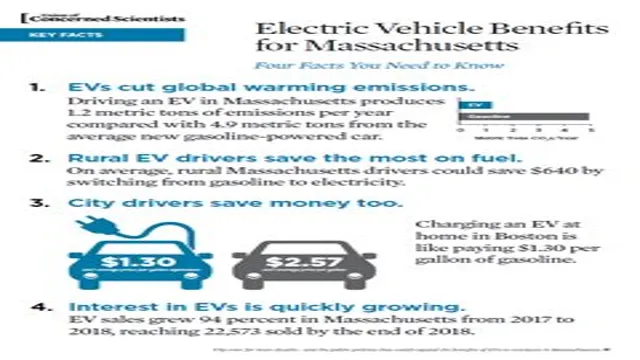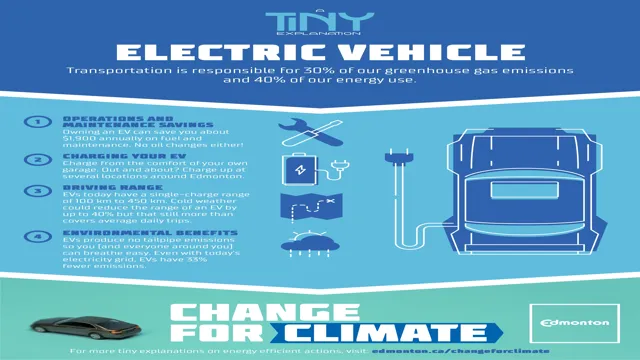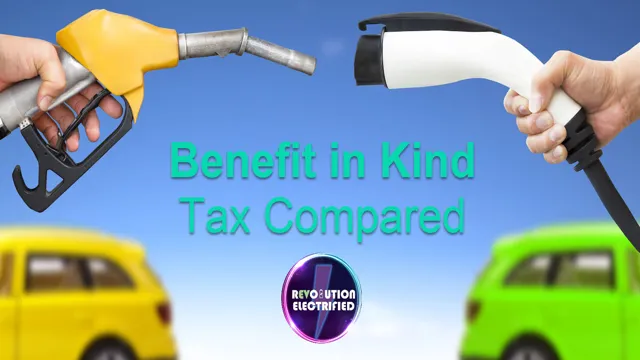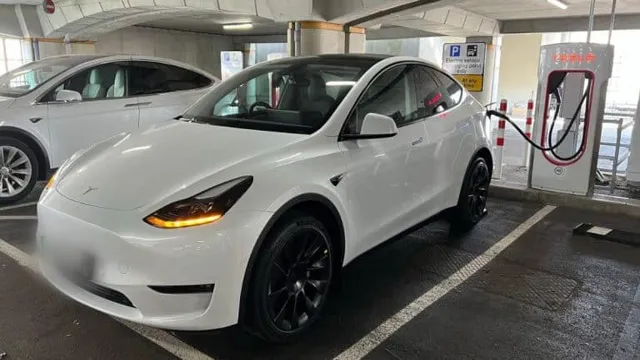Driving Towards a Greener Future: Top Benefits of Switching to Electric Cars in the Country
Electric cars are becoming increasingly popular around the world due to their many benefits. Not only do they offer a more eco-friendly mode of transportation, but they also have numerous benefits for individuals and countries alike. By switching to electric cars, countries can significantly reduce their dependence on fossil fuels, which can have a positive impact on the environment and the economy.
One of the biggest benefits of electric cars is their low-maintenance costs. Electric cars have fewer moving parts than traditional cars, which means there are fewer things that can break down and cause expensive repairs. Additionally, electric cars don’t require regular oil changes or other routine maintenance, which can save car owners both time and money.
Another major benefit of electric cars is their reduced carbon emissions. When compared to gas-powered cars, electric cars produce a significantly smaller amount of greenhouse gases, which can help to reduce air pollution and combat climate change. This is especially important for countries that are looking to meet their emissions reduction targets and improve their overall environmental performance.
Lastly, electric cars can be a great way for countries to reduce their dependence on foreign oil. By producing their own electricity through renewable sources like wind and solar power, countries can reduce their reliance on foreign oil imports and improve their energy security. This can also have a positive impact on the economy, as it can create new jobs and stimulate growth in the renewable energy sector.
In conclusion, the benefits of electric cars are numerous and can have a significant impact on both individuals and countries. By switching to electric cars, countries can improve their environmental performance, reduce their reliance on fossil fuels, and create new jobs in the renewable energy sector. So why not make the switch today and start reaping the benefits?
Lower CO2 Emissions
There are numerous countries that are already benefiting from switching to electric cars. Lowering CO2 emissions is perhaps one of the biggest advantages of embracing electric vehicles. Not only do electric cars produce significantly less emissions than traditional gas-powered cars, but they are also more energy-efficient.
This means that they require less energy to operate and can, therefore, reduce the demand for non-renewable sources of energy. In addition, electric cars can also help to improve local air quality by reducing the amount of pollutants that are emitted into the air. As a result, cities and towns that have made the switch to electric cars have seen a significant improvement in the health of their residents and the overall environment.
By making the switch to electric vehicles, countries can make great strides towards reducing their carbon footprint and creating a more sustainable future for all.
Electric Cars are More Environmentally Friendly
Electric cars have become increasingly popular in recent years due to their numerous benefits over traditional gasoline-powered cars. One of the most significant advantages of an electric vehicle is its lower CO2 emissions. CO2 emissions have been linked to climate change, global warming, and air pollution, and electric cars can significantly reduce these negative effects.
When charged with renewable energy sources such as solar or wind power, electric vehicles produce almost no carbon emissions. Since electric cars do not have an exhaust system, they do not emit pollutants that are harmful to humans or the environment, such as carbon monoxide or nitrogen oxide. Thus, driving an electric vehicle can be seen as a positive step towards a cleaner and healthier planet.
Overall, it is clear that switching to an electric car is an excellent way to reduce emissions and protect the environment for future generations.
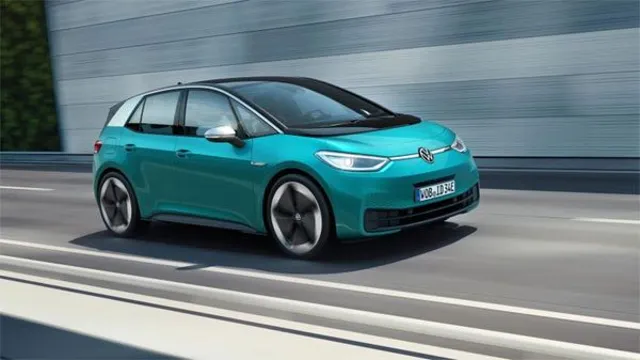
Reduced Greenhouse Gas Emissions
Reducing greenhouse gas emissions is vital to combat climate change and protect our planet’s future. One of the most significant ways we can reduce these emissions is by lowering CO2 levels. Carbon dioxide is one of the most potent greenhouse gases, trapping heat in our atmosphere and contributing to global warming.
By reducing the amount of CO2 we emit into the atmosphere, we can slow down the effects of climate change. Fortunately, there are many ways to lower our CO2 emissions. We can switch to renewable energy, reduce our use of fossil fuels, and support policies that promote sustainability.
By taking these actions, we can make a meaningful difference in the fight against climate change and create a brighter future for ourselves and future generations.
Energy Security
Switching to electric cars can greatly benefit a country’s energy security. This is because electric cars do not rely on fossil fuels and instead run on electricity generated from renewable sources. By reducing our dependence on foreign oil, we can pave the way for more sustainable energy sources and decrease the risk of supply disruptions.
In addition, electric cars are much more efficient than gasoline-powered cars, which means they require less energy to achieve the same results. This makes it easier for us to meet our energy needs while reducing our carbon footprint. Another benefit of electric cars is that they can be charged at home or at charging stations, which means we do not have to rely on gas stations for fuel.
Overall, switching to electric cars is a smart move for countries that want to boost their energy security, reduce their environmental impact, and save money on fuel costs.
Less Dependence on Fossil Fuels
“Energy security” As the world population grows, the demand for energy also increases. But relying solely on fossil fuels can pose a risk to a country’s energy security. This is because natural resources like oil and gas are finite and can be affected by price fluctuations caused by global events like wars, natural disasters, or supply disruptions.
However, reducing dependence on fossil fuels and diversifying the energy mix can help countries achieve energy security. Renewable energy sources like wind, solar, and hydro can provide long-term energy security and stability. They are also environmentally friendly, which means they can help reduce greenhouse gas emissions, combat climate change, and protect the planet.
By investing in renewable energy, countries can create jobs, boost their economy, and secure their energy future. Therefore, energy security is an important aspect of any country’s long-term energy strategy, and governments should prioritize the development of renewable energy sources to ensure a sustainable and secure energy future.
Potential for Homegrown Energy
The potential for homegrown energy is becoming increasingly more important in today’s world as we strive for greater energy security. With the looming threat of climate change and the unpredictability of global energy markets, it’s time we seriously consider investing more in renewable energy sources, such as solar and wind. By relying less on foreign oil and gas imports and generating more of our own energy domestically, we can reduce our dependence on non-renewable resources and create a more sustainable future.
Not only will this help us achieve energy security, but it will also create new job opportunities and boost local economies. Investing in homegrown energy is a win-win scenario for both our environment and our economy.
Less Vulnerability to Global Oil Prices
Whether we realize it or not, global oil prices affect us all. They can drive up the cost of everything from transportation to heating our homes. However, by investing in renewable energy sources such as solar and wind power, we can decrease our vulnerability to these price fluctuations.
This is because renewable energies are not dependent on the availability of fossil fuels, which are subject to fluctuating prices due to global supply and demand. By utilizing renewable energy sources, we can create a more stable energy supply for our communities and decrease our dependence on unreliable energy sources. It’s like having a diversified investment portfolio – we’re spreading our energy sources out to decrease our risk and increase our energy security.
By doing so, we can reduce our environmental impact and keep more money in our pockets.
Economic Benefits
Switching to electric cars can bring numerous economic benefits to a country. For starters, it can significantly reduce a country’s dependence on oil imports, which can save billions of dollars in foreign currency. Additionally, the shift to electric vehicles can create new job opportunities in the manufacturing, sales and servicing sectors, boosting a country’s economy.
Another significant benefit of adopting electric cars is the reduction in carbon emissions, which can lead to potential cost savings in terms of environmental and health impacts. Moreover, electric cars cost less to operate and maintain in the long run, resulting in savings for both individuals and government agencies. Overall, switching to electric cars presents an opportunity for a country to enhance its economy and simultaneously address pressing environmental concerns.
Potential for Cost Savings
When it comes to implementing sustainable practices, businesses often worry about the potential costs involved. However, investing in eco-friendly practices can actually result in significant cost savings in the long run. By reducing waste and optimizing resource usage, companies can lower their operational expenses and boost their bottom line.
For example, implementing energy-efficient lighting can cut electricity bills, while conserving water can reduce water bills. Additionally, reducing material waste through recycling or reusing can save on disposal fees and potential fines for improper waste management. Beyond direct cost savings, businesses that prioritize sustainability may also benefit from increased customer loyalty and improved brand reputation, leading to greater profits in the long term.
By investing in sustainable practices, businesses can not only reduce their environmental impact but also reap substantial economic benefits.
Job Creation in the EV Industry
Electric vehicles (EVs) have proven to be a driver of job creation in the automotive industry. EV production and deployment create a diverse range of well-paying jobs, including engineering, manufacturing, sales, and maintenance positions. According to the US Department of Energy, by 2030, there could be up to 2 million EV-related jobs in the US alone.
These jobs provide a boost to local economies, generating tax revenue and encouraging the growth of supporting industries. Additionally, the demand for EVs is expected to spur innovation, driving the development of new technologies and further employment opportunities. In short, the shift towards EVs offers significant economic benefits and has the potential to bring about positive changes across many industries.
So, exploring this sector can be a game-changer for the automotive industry, creating new jobs and boosting the economy.
Infrastructure Development
As countries start to shift towards electric cars, many benefits come along with this infrastructure development. For starters, electric cars can reduce greenhouse gas emissions, helping to combat climate change. This helps to improve the air quality, which can improve the health of individuals.
Another key benefit is that electric cars can reduce our dependence on foreign oil, thus supporting the local economy. Since electric cars are cheaper to maintain and have lower fuel costs than gas-powered cars, individuals can save money on gas expenses. Additionally, electric cars run quietly, helping to reduce noise pollution.
Overall, switching to electric cars can bring a multitude of benefits to individuals and the country, from environmental to economic and beyond.
Conclusion
The benefits of switching to electric cars are clear: reduced emissions, lower fuel costs, and a cleaner environment. But the most exciting benefit may be the opportunity for small countries to finally have a big impact on the global stage. With electric cars, tiny island nations and isolated communities can now take a meaningful step towards a sustainable future, and that’s an electric win for everyone.
“
FAQs
What are some of the benefits of switching to electric cars for a country?
There are several benefits of switching to electric cars for a country, including reducing harmful emissions, lowering dependence on fossil fuels, and potentially saving money in the long-term.
How does switching to electric cars help reduce harmful emissions?
Electric cars produce zero emissions while driving, which can greatly reduce the amount of harmful pollutants released into the air and improve air quality in a country.
Is it cost-effective for a country to switch to electric cars?
While there may be upfront costs for a country to transition to electric cars, in the long run, it could potentially save money in terms of fuel costs and maintenance expenses.
What are some potential challenges a country may face in switching to electric cars?
Some potential challenges include the need to build charging infrastructure, potential battery supply chain issues, and the high cost of electric cars compared to traditional gasoline-powered cars.

